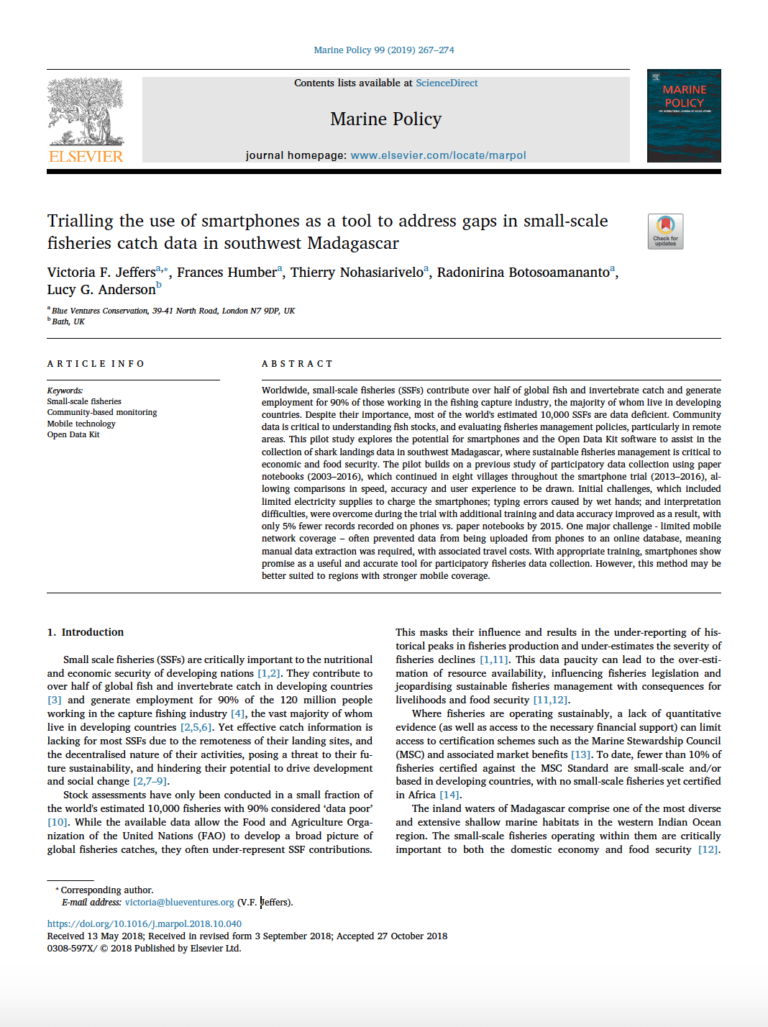Abstract
Worldwide, small-scale fisheries (SSFs) contribute over half of global fish and invertebrate catch and generate employment for 90% of those working in the fishing capture industry, the majority of whom live in developing countries. Despite their importance, most of the world’s estimated 10,000 SSFs are data deficient. Community data is critical to understanding fish stocks, and evaluating fisheries management policies, particularly in remote areas. This pilot study explores the potential for smartphones and the Open Data Kit software to assist in the collection of shark landings data in southwest Madagascar, where sustainable fisheries management is critical to economic and food security. The pilot builds on a previous study of participatory data collection using paper notebooks (2003–2016), which continued in eight villages throughout the smartphone trial (2013–2016), allowing comparisons in speed, accuracy and user experience to be drawn. Initial challenges, which included limited electricity supplies to charge the smartphones; typing errors caused by wet hands; and interpretation difficulties, were overcome during the trial with additional training and data accuracy improved as a result, with only 5% fewer records recorded on phones vs. paper notebooks by 2015. One major challenge – limited mobile network coverage – often prevented data from being uploaded from phones to an online database, meaning manual data extraction was required, with associated travel costs. With appropriate training, smartphones show promise as a useful and accurate tool for participatory fisheries data collection. However, this method may be better suited to regions with stronger mobile coverage.
Keywords
Small-scale fisheries; Community-based monitoring; Mobile technology; Open Data Kit














